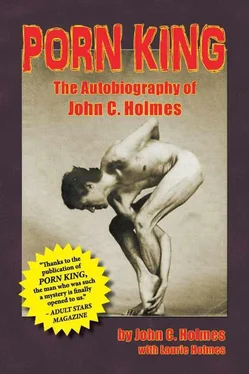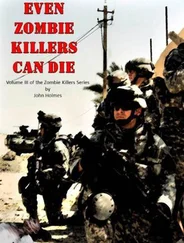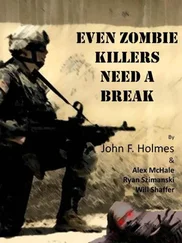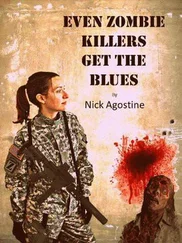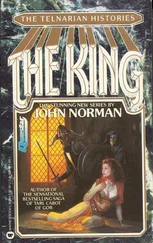No doctor was present in my introduction into the world. There was only a strapping neighbor lady who acted as midwife. The woman had assisted in dozens of deliveries, but from her reaction, she’d never seen anything like the long, hairless infant she held in her arms. After a scrutinizing once-over, her first words were not the customary announcement of gender or well being, but a disbelieving “This baby has three legs and two feet.” In the years to come, the midwife’s remark would be repeated countless times over, in varying forms and degrees of excitement. Her off-the-cuff reference to my middle “leg” was surprising considering the puritan surroundings. Any other euphemism, even clinical, would certainly have shocked my poor mother. As it was, she could easily have been led to believe that her latest-born was strangely deformed. The little framed farmhouse belonged to Mother’s folks, Carrie and John Barton, a hardy, hard-working, deeply religious couple who shared a love of the land and family; good, proud people guided by God rather than money and its rewards. The long hours they put in daily should have earned them more than self-satisfaction, yet they never complained. To their way of thinking, luxuries were playthings of the rich, of far less importance than the minimal necessities of life. In that regard they had everything they could possibly need. It mattered little that the “facility” wasn’t located inside, or that the wood burning stove in the kitchen was their main source of heat when temperatures dropped to freezing, or that running water came not from a faucet but from a pump that had to be primed.
For six days a week, from dawn till dusk, Grandmother Barton tended to chores in and around the house. She had more to keep her busy cleaning and preparing meals. In the spring, she planted crops in the family garden: sweet corn, peas, beans, tomatoes, squash, and more. In the summer and fall, she set the kitchen steaming with bubbling kettles filled with harvest to be stored in glass Mason jars for winter eating. And, always, there were pigs to slop, chickens to feed, and eggs to gather.
Grandpa Barton, a tall, fair-haired Scotsman with electric blue eyes, worked for a local railroad company. Each weekday morning at sunrise he could be seen walking the short distance from the house to the tracks where he’d await the early train that would carry him through the lush Ohio Valley into the big city, Columbus, some eighteen miles to the west.
Sundays were devoted to churchgoing and rest. It was also the day when the Holmes kids came to visit, which often made relaxing difficult, if not impossible. We were a boisterous bunch, and a houseful. In addition to me, there were brothers William and Eddy, and sister Ann. To help channel our energy and keep us out of the grown-ups’ hair, mother kept coming up with tasks for us to do. If she wasn’t sending us off to the railroad tracks to collect scraps of wood for the kitchen stove (which, thinking back, was like shooting us out to the freeway to play), she’d have us pulling weeds in the vegetable patch or cleaning the poultry pens. Each of the assignments wisely kept us out of doors, away from the house. If the truth were known, the plot to “keep the kids busy” was probably more for Mother’s benefit than for Grandma or Grandpa, who seemed genuinely delighted to have us underfoot. In fact, John Barton frequently took me aside to tell adventurous tales of his childhood. Having been named after him probably had a lot to do with our close relationship. He was also pleased that I was “the spitting image” of him as a boy, the only one of his grandchildren who had his fair hair and blue eyes. “If I’d had a twin brother when I was growing up,” he’d remark with a disbelieving shake of his head, “he’d have looked exactly like you. Why, having you around is like turning back the clock.” Then, poking a long finger in my ribs, he’d crack, “But don’t let that get you down.”
No such bond developed between any of the Holmes children and Father’s side of the family, and for good reason: we rarely saw them, nor was much ever said about them, at least in any complimentary way. Whenever one of their names came up, the word “hillbilly” always popped into the conversation. As for Father, well…Mother was always making excuses for him, especially when we’d go visiting. “Ed is finishing up a job today,” she’d explain to her parents, making him sound conscientious. Most often, however, she used a sympathetic approach. According to Mother, her husband had more colds, sore throats, and upset stomachs than a room full of kindergartners. She should have saved her breath. Everyone knew better, and they couldn’t have cared less.
Edward Holmes was average-sized man; around six feet tall, with dark hair and watery, red rimmed eyes, a poor excuse for a human being and even lower on the scales as a husband and father. He called himself a carpenter although he worked only when necessary, which meant when he was desperate for a drink. Whatever money he earned, every penny of it, slipped quickly through his fingers in Columbus’ bars and liquor stores. Beer, more than anything, was his passion. Memories of my father are hazy, mainly because his drinking, which was constant, but two things really stand out in my mind. My earliest remembrance is of an unshaven, sloppy and slobbery man with a horrible stench on his breath leaning over and kissing me. The other is that he secretly collected nudist magazines. One day, when I was no more than four or five, I came across a dog-eared issue of Sunshine and Health that he’d stuffed under an old cushion. By today’s standards, the photos inside, mainly shots of undressed adults and children wandering happily along wooded trails weren’t explicit, not even the shot of a bare-breasted girl posed artfully on a sandy dune. Seeing everyone totally exposed in the out-of-doors, and obviously enjoying themselves, must have been quite a revelation to me. No one in our family dared go anywhere without covering up, not even from room to room.
The discovery was much too important to keep to myself. Mother was taking a nap on the couch. She’d come home early; she was not feeling well. Not wanting to awaken her, I tiptoed to the living room window and pressed the magazine, opened to the naked girl on the beach, against the glass. It wasn’t long before some of the neighborhood children began to gather, pointing fingers and snickering as they strained to see. The next thing I knew, Mother was awake and standing over me. “What are you doing, John?” she asked sternly.
“Nothing,” I mumbled. Until then, I hadn’t realized I was doing anything wrong. But Mother’s sudden presence, and the sharp tone of her voice, had me shaking.
“We’ll see about that!” She snapped. Snatching the magazine from my hands, she quickly thumbed through it, her eyes growing wider with each passing page. Then she slammed it to the floor and grabbed my shoulders, holding firm. “Where did you get that trash?”
I started to cry.
“Tell me!” She demanded.
Somehow, I managed to point across the room and say, feebly, “Over there.” That wasn’t good enough apparently, because I soon felt her hand whipping my butt. It was one of Mother’s rare outbursts, and one that discouraged me for a few years, at least, from making a spectacle of myself over a naked lady.
Unfortunately, my experience had no effect whatsoever on my father, not that it really mattered. Leaving the old man behind was only one reason we looked forward to our weekly trips to the country. The biggest benefit by far was getting away from the crummy place we called home.
Like all of America, Columbus, Ohio had been devastated by the Great Depression of the 1930s. Most of the country had rebounded by the start of World War II, but Columbus still counted vast numbers of indigents, many destitute, living in makeshift shacks and shanties around town. A number of the poor and homeless even took to sneaking into the basements of other peoples’ homes at night for shelter. The crime rate was staggering, and climbing. In seeking a solution to the problem, the city fathers decided to round up all the poor and contain them within the industrial section of town, where the slums were located. A cluster of three-story red brick buildings covering four city blocks were constructed, providing jobs for some of the unemployed, and “The Project” was born.
Читать дальше
